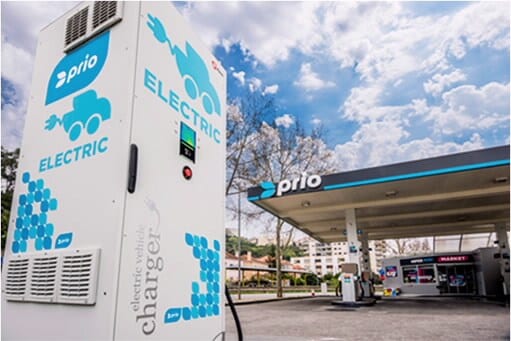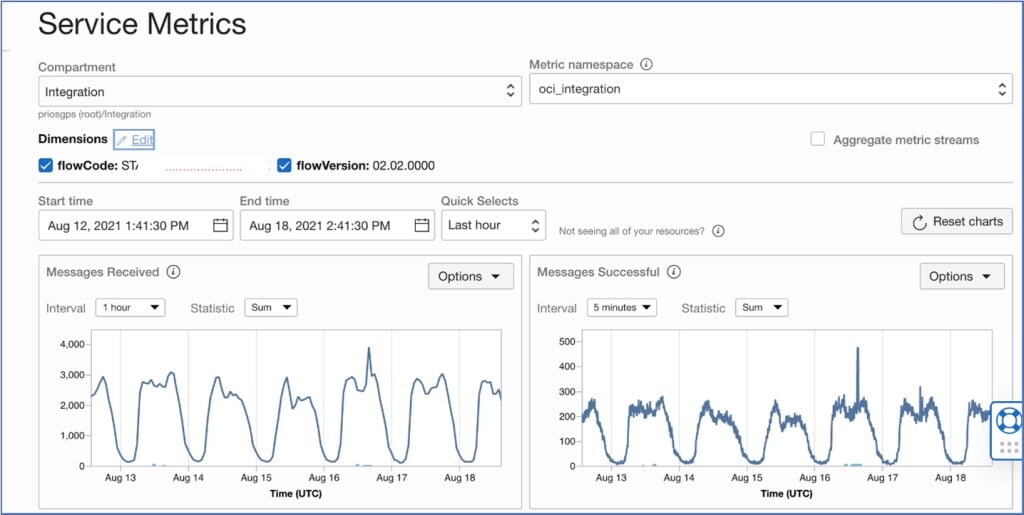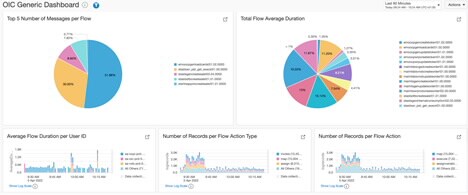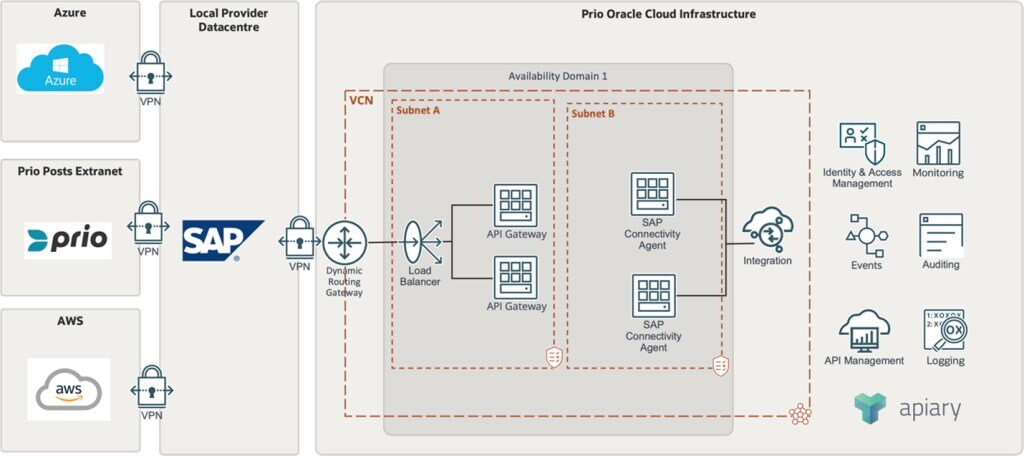PRIO Energy connects their multicloud EV charging network faster with Oracle Cloud Infrastructure integration services
May 31, 2022 | 7 minute read
“Before, it was difficult to sense and respond to integration issues. With OCI Integration and API Management services we now have the real time visibility we need to resolve issues in minutes rather than hours and we've reduced our time to deploy new services from two weeks to three days.”
PRIO distributes and commercializes liquid fuels and electric energy for mobility with a tank terminal, biodiesel plant and a gas-filling unit located in the Port of Aveiro. It has over 250 fuel stations, serving over two million customers monthly, and owns the largest private network of EV charging points in Portugal. PRIO was founded 12 years ago with a startup culture that has always encouraged innovation and risk taking. When the company needed to modernize its point-to-point SAP ERP interfaces, the team looked for an API-led, cloud-based automation platform to fuel their continued growth.

After a detailed evaluation of the leading enterprise integration Platform as a Service (eiPaaS) and cloud providers, PRIO selected Oracle Cloud Infrastructure (OCI) to support its rapid expansion into Spain and acquisition by Grupo DISA. OCI's financially backed SLA and unified observability made it the right choice for PRIO’s ambitious plans. The hybrid and multicloud solution was delivered using API-first principles, prebuilt SAP ERP adapters, and best practices.
PRIO Energy's goals
The team had several key goals for using OCI services in this initiative:
- Use cloud technology to improve internal and partner system interactions
- Eliminate point-to-point interface complexity around its corporate SAP ERP system
- Deliver reusable, API-first integration and automation solutions faster to power growth
Key Oracle products used
PRIO leveraged multiple OCI services, software developer kits (SDKs), and frameworks:
- OCI Application Integration: A visual automation platform for simply connecting applications, APIs, and data using prebuilt adapters such as SAP and sFTP. PRIO's application ecosystem spanned cloud providers and included on-premises systems.
- OCI API Management: Oracle API Management helped PRIO developers to quickly design and securely expose its APIs for commercial or regulatory purposes. PRIO started with a previous edition and is planning to deploy this service.
- OCI Identity and Access Management (IAM): Oracle IAM solutions secure access to enterprise applications for both cloud and on-premises deployments.
- OCI Logging: All OCI services generate logs that are associated with each component metrics page and available to the Monitoring service.
- OCI Logging Analytics: A machine learning-based service that monitors, aggregates, indexes, and analyzes all log data from PRIO's on-premises and multicloud environments.
- OCI Monitoring: A service for real-time insight into cloud infrastructure and workloads with out-of-the-box metrics for health and performance. Configurable alarms detect and respond to infrastructure and application anomalies.
- OCI Audit: A service that automatically records calls to all supported Oracle Cloud Infrastructure public application programming interface (API) endpoints as log events.
- OCI Events: A service to track resource changes using events that comply with the Cloud Native Computing Foundation (CNCF) CloudEvents standard. Developers respond to changes in real-time by triggering code with Functions, writing to Streaming, or sending alerts using Notifications.
- OCI Alarms: A service to send notifications across channels to operators when resources are at risk or may become unavailable.
Products and services
The Oracle solution
PRIO Energy and Link Consulting delivered a multicloud application network solution that connected fueling stations with its corporate SAP ERP system. The SAP ERP integrations automated all aspects of fueling station transactions including product purchases and gasoline measurements.
Using traditional approaches, connecting fueling stations to PRIO Energy’s SAP ERP system took weeks or months. The lack of reuse resulted in a complex, inefficient, and hard to manage mix of point-to-point interfaces.
PRIO's new API-led solution delivered a generic service that connected partners in hours or days. In addition to onboarding partners in days rather than weeks, the team easily modified integrations and gained real-time visibility into all services and transactions.

PRIO Energy evaluated a short list of enterprise integration Platform as a Service (eiPaaS) leaders and selected Oracle Cloud based on its unified service monitoring and financially backed Service Level Agreement for 99.95% reliability. Only Oracle’s SLA included the commitment to help PRIO scale and manage services for performance at an attractive price.
According to Filipe Augusto, Head of Architecture and Business Applications at PRIO Energy, “Oracle’s integration platform beat all others hands down. It offered a better financial proposal too with competitive pricing and up to ten terabytes of free data egress, we saved 15% over the other eiPaaS leaders we considered.”

Simplifying operational complexity was a top design consideration for PRIO. The team leveraged Oracle Integration’s business insight dashboards to:
- Gain a unified, real-time view of all integration status
- Track transactions end-to-end to quickly assess potential issues
- Manage exceptions in minutes to avoid business disruption
Technical Implementation on OCI
Link Consulting, in partnership with PRIO Energy, developed a cloud-native, API-first platform based on OCI App Integration with microservices invoked through OCI API Management and protected by OCI Identity and Access Management. Multiple services were used to quickly automate connectivity between fueling stations and PRIO's SAP ERP system including OCI Events, OCI Logging, OCI Monitoring, and OCI Audit.

The solution is based on Oracle Integration (OIC) which enables reliable and secure interactions between PRIO's SAP ERP application and all other business systems. PRIO's internal and partner application ecosystem spanned cloud providers and included on-premises applications. Oracle Integration helped PRIO accelerate connectivity with visual data mapping, unified transaction monitoring, and a wide range of prebuilt adapters.
The supported SAP adapter enabled PRIO to quickly deliver secure and scalable ERP connections. It translated SAP iDocs, RFCs and BAPIs for simpler, two-way connectivity with any cloud or on-premises business system.
PRIO used the prebuilt SFTP adapter to simplify bulk, file-based integrations. The team leveraged the embedded FTP server that is included with Oracle Integration to focus on delivery without needing to host and maintain separate SFTP servers.
API Management enabled PRIO to unify and quickly change its integration security policies. Oracle Identity Cloud Service (IDCS) provided role-based access management and security across teams. PRIO's infrastructure team had access to network configuration and compute maintenance while developers accessed the Dev and Test environments.
High availability was a key design consideration for PRIO. All production API Gateways had two nodes with an OCI Load Balancer to manage the traffic. The SAP ERP adapters were also redundant and balanced by Oracle Integration (OIC).
To ensure required performance at scale, the SAP ERP adapter was deployed on OCI. The team used Fast Connect, so transactions did not need to be initialized by the adapter and ran smoothly over the VPN.
Results
PRIO's ERP project provided visibility into all transactions and a secure way to manage its hybrid and multicloud integrations in one place. According to Filipe Augusto, “It’s a real advantage over having to develop everything by hand. Oracle Cloud Infrastructure Integration and API Management services have become the backbone of our IT landscape.”
PRIO developers can now use Oracle API Management to quickly secure and change access to integrations. Oracle Integration dashboards help PRIO operators manage the cost of compute power and optimize traffic between internal and partner applications. As Filipe Augusto says, “We are always looking for ways to improve and get the most out of our systems while limiting costs. We have a lot of compute, especially with the SAP integrations, and believe that Oracle's usage-based pricing model is aligned with our growth strategy.”
PRIO built business agility with this technical implementation. When PRIO was acquired by Grupo DISA, the company connected it's SAP ERP application to Grupo DISA's internal systems in under a week.
Before, it was difficult to sense and respond to integration issues. With OCI Integration and API Management services we now have the real time visibility we need to resolve issues in minutes rather than hours and we've reduced our time to deploy new services from two weeks to three days.
Looking ahead
Based on the success of this project, PRIO is expanding its use of OCI services by:
- Implementing additional B2B transactions to optimize partner interactions
- Creating more operational dashboards with Oracle Integration insight analytics
- Adopting the latest release of OCI API Management
- Leveraging OCI Identity and Access Management for multifactor authentication
- Exploring additional OCI services as part of their partnership with Oracle.
Discover more technical reference architectures and try Oracle Cloud Infrastructure services for free.